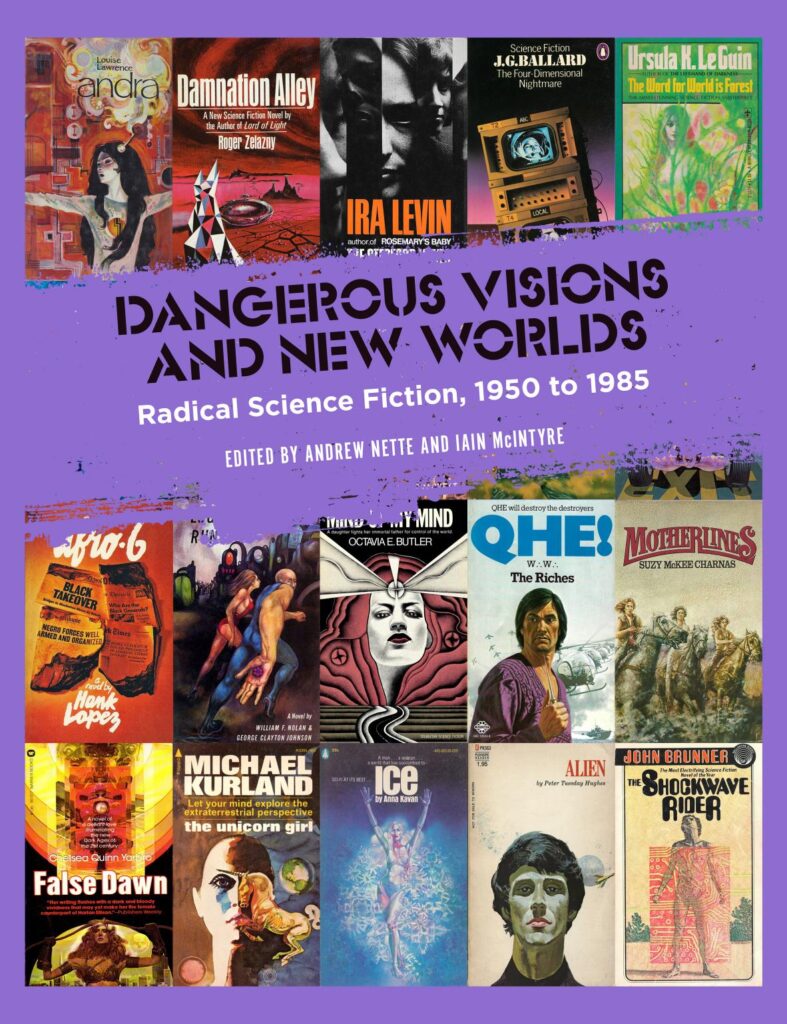DANGEROUS VISIONS AND OTHER WORLDS

ed. By Andrew Nette and Iain McIntyre
PM Press
(www.pmpress.org)
2021, 216 pages, $29.95
ISBN 978-1-62963-883-6
Click here to purchase
The title reflects a concentration of the New Wave artists of the 1960s and 1970s, including the multiple award-winning author and groundbreaking editor of the SF anthologies DANGEROUS VISIONS and AGAIN, DANGEROUS VISIONS — Harlan Ellison — along with the editor of the British magazine, NEW WORLDS — editor Michael Moorcock.
Both editors purchased and promoted anti-establishment, anti-1950s, fiction, flying in the face of so much outdated pulp SF, the kind published by ultraconservative editor John W. Campbell and what he featured in ASTOUNDING (that became ANALOG) magazine.
I grew up reading the New Wave authors: Thomas M. Disch, Norman Spinrad, Ellison himself, Samuel Delany, Kate Wilhelm and others, including old-wave-turned-New Wave author Robert Silverberg, along with Ursula LeGuin.
The book’s best essay is the best of the New Wave, “Vast Active Living (Possibly) Insane System: Paranoia and Antiauthoritarianism in the Work of Philip K. Dick” by Erica L. Satifka. This essay has marvelously good insight and observations about the king of speculative fiction, despite being ridiculously short on the best book that went to the movies, all time, when Hollywood gave us “Bladerunner” in 1982, adapting Dick’s novel, DO ANDROIDS DREAM OF ELECTRIC SHEEP?
The second-best essay, if I could pinpoint such as thing, was the excellent “Black Star: The Life and Work of Octavia Butler,” by Michael A. Gonzales. I still think Butler’s KINDRED novel should be made into a major motion picture. Butler did the most of any single author, in my mind, to bring to bear the changes in today’s SF, opening up more opportunities for authors of color, for the LGBTQ+ community, for equity, diversity and inclusion, and for giving us unforgettable tales. The genre is better for this, and her works champion her wonderful talents. It is so sad that Butler hasn’t been with the SF community for quite some time.
Still, a marvelous collection of essays from that era.

